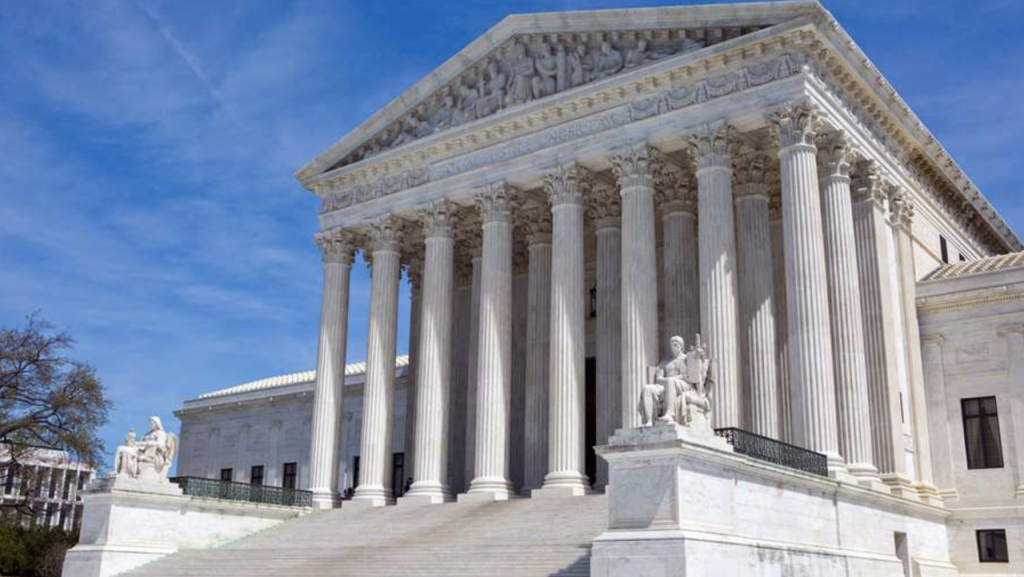The US Supreme Court ruled Thursday that California violated the First Amendment by requiring charitable organizations operating in the state to disclose the names and addresses of their major donors.
In the 6-3 decision, delivered by Chief Justice John Roberts, the court ruled that California’s disclosure requirement “imposes a widespread burden on donors’ associational rights.”
“The Court does not doubt the importance of California’s interest in preventing charitable fraud and self-dealing. But the enormous amount of sensitive information collected….does not form an integral part of California’s fraud detection efforts,” the chief justice wrote July 1.
Roberts added that the requirements “cannot be justified” on the ground that they are “narrowly tailored to investigating charitable wrongdoing, or that the State’s interest in administrative convenience is sufficiently important.”
Alliance Defending Freedom, a Christian legal group, praised the ruling Thursday.
“The Supreme Court has confirmed that every American is free to peacefully support causes they believe in without fear of harassment or intimidation,” said ADF Senior Counsel John Bursch.
“Public advocacy is for everyone, not just those able to weather abuse. Forced donor disclosure is a threat to everyone and discourages both charitable giving and participation in the marketplace of ideas. The court correctly upheld the First Amendment’s promise of the freedom to associate with like-minded groups, which includes the right to donor privacy.”
One of the plaintiffs in the case was the Thomas More Law Center, a conservative legal organization based in Michigan. According to ADF, beginning in March 2012, the California Attorney General’s Office began to harass the center, demanding the names and addresses of its largest financial supporters.
The Thomas More Law Center's president and chief counsel is Richard Thompson, who came to prominence for opposing prominent assisted suicide advocate Jack Kevorkian. Thompson co-founded the law center in in 1998 with Thomas Monaghan, the founder of Domino’s Pizza who continues to be a prominent Catholic philanthropist. Alliance Defending Freedom said about 5% of donors to the law center are California residents.
TMLC say the California requirement would have made their donors vulnerable to retaliation, harassment, and violence. The group filed a lawsuit in 2015 against then-California Attorney General, and now US Vice President, Kamala Harris.
At issue in California’s requirements were Schedule B forms, which charities were required to provide to the state and which included the names and addresses of donors who have given $5,000 or more to the organization. Beginning in 2010, the California attorney general said that disclosures must include this Schedule B.
Qualified tax-exempt organizations already must submit to the IRS a Form 990 federal information form, but the information about these donors must be kept confidential on pain of civil and criminal law.
The plaintiffs alleged that there is a high risk their information will be made public and disrupt their freedom of association.
A federal judge in California had blocked the requirements on the grounds that audits of Schedule B forms were rare, and that the information could instead be obtained through subpoenas. An appeals judge reversed that ruling, and the plaintiffs appealed to the Supreme Court.
California had promised to keep the forms secret, but had on at least one occasion “inadvertently” posted nearly 2,000 Schedule B forms publicly online, the New York Times reported.
A large number of charities representing a broad range of ideologies had offered support for the plaintiffs against California’s requirements.
The First Liberty Institute, a legal group based in Texas, also lauded the ruling.
Kelly Shackelford, President, CEO, and Chief Counsel for FLI, said the ruling showed that “the disclosure of names and addresses of citizens simply for belonging to a cause is chilling to the freedom of association.”
“The freedom to associate with others of like mind is indispensable to freedom,” Shackelford said.
Justice Sonia Sotomayor, writing in dissent, suggested that the broad logic of the ruling could erode campaign donor disclosure requirements. She was joined in her dissent by Justices Breyer and Kagan.

